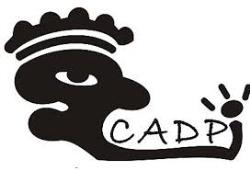Location
The Centre for the Indigenous Peoples’ Autonomy and Development (CADPI) is a social organisation dedicated to research and studying of issues related with the indigenous peoples in Nicaragua, regional in Central America and Latin America and on a global level.
CADPI works to strengthen the local capacities in the autonomous governments through consultations and counselling on issues of autonomic management leading to solutions of social problems. The activities realized by CADPI include indigenous peoples' rights and autonomy, rights of indigenous women, cultural revitalization, intercultural communication, climate change and indigenous peoples.
Members:
Resources
Displaying 1 - 1 of 1Capacity development programme on the VGGT applied for and with Indigenous Peoples
General
The “Capacity development programme on the VGGT applied for and with indigenous peoples” in Central America was conducted with the Centro para la Autonomia y Desarrollo de los Pueblos Indigenas (CADPI). It brought together Indigenous Peoples Representatives and Experts from different countries in the Central America Region (Honduras, El Salvador, Costa Rica, Guatemala, Nicaragua and Panama), including representatives of the national/regional/local governments. The VGGT were translated into Miskitu (indigenous language from Nicaragua), and specifically designed training material was prepared, which is currently being collated with funding support from the MUL project. Good practices and major challenges related to governance of tenure in each country involved were identified and shared; the participants carried out studies comparing the respective national legal and policy framework on Indigenous Peoples'tenure rights and the international one, using the VGGT as a reference. These studies also addressed specific aspects of the VGGT in their own indigenous communities. A final programme report was prepared which included: an analysis of workshop series results and key messages; the participants' studies; and the participants' evaluation of the training programme.


